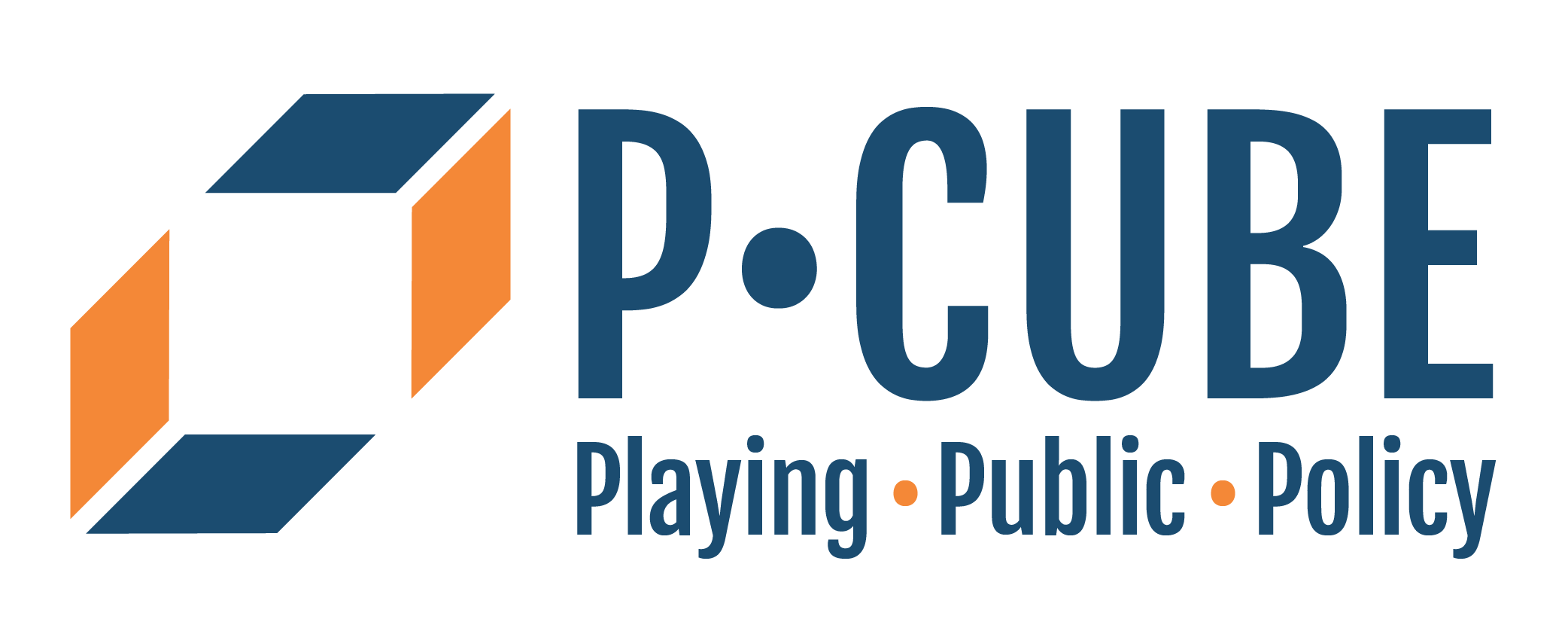
Science for Democracy’s members are currently involved in the project P-Cube – a public policy game, in collaboration with Universitat Autonoma de Barcelona, Technische Univeristait Delft, Politecnico di Milano, Universite du Luxembourg, ALDA – Association des agences de la democracie local.
The official website of the project can be found on www.p-cube-project.eu/
The initiative
The project is Erasmus+ funded and aims to improve awareness about the importance of developing multi-disciplinary skills in the policy making field, primarily addressing higher education (HE) students, but also decision-makers, urban planners, NGOs, CSOs, social workers and scientists.
The goal of P-CUBE is to build an educational strategy game (the Policy Game) designed to teach the theory and practice of public policy making to different groups of people, principally students.
The prototype of the game has been developed, and it is currently being tried and tested at various demo events to different audiences in various national and international settings. The game will then be modified to incorporate their comments and suggestions.
We expect that even during the project, and immediately after its release, the game will be inserted into, and sometimes form the core of, new curricula in HE and post-experience training in the policy fields the game is focused on.
In terms of impact, in the medium to long-term, we expect that this project will promote greater public engagement through accessible means. The purpose is to contribute towards dispelling misconceptions around the way innovations in public policies are taken by presenting the process through an interesting and realistic model. The game will help players become more familiar with the complexities of public policy making, and show that there are several different ways to overcome the obstacles that prevent current governance systems from tackling collective problems.
Technical details
The basic assumption, supported by the literature on Public Policy studies, is that the dynamics for policy making processes are similar within different policy fields, yet the set of actors varies from one policy to another. The Policy Game, therefore, has two objectives:
- Show how decisions in the public sphere are taken and what kinds of decisional strategies can be employed by the promoters of policy innovation.
- Help players/students/trainees become familiar with the specificities of the policy fields in which they are involved.
The theoretical approach assumes that an actor wanting to introduce a non-trivial policy innovation (the policy entrepreneur) will be faced with obstacles deriving from the opposition of other actors and/or by the lack of the necessary resources. In order to overcome these obstacles, the policy entrepreneur can use different strategies (altering the distribution of the resources, modifying the content of the decision, transforming the interaction between the actors, choosing the right timing for the decision) in various possible combinations.
It is a kind of approach that has already been tried for several years in different contexts. This conceptual framework is widely accepted in Public Policy studies, and has been set out in a textbook (“Understanding Policy Decisions”, Springer, 2014) by the principal scientific director responsible for the entire project. The English, Italian and Spanish versions of this book are now used in several European and Latin American universities. The experience of teaching this course led to the idea of creating and introducing a game, based in the conceptual framework, that can help students and others in their learning process.
The Contribution of Science for Democracy to P-Cube
Our package in P-Cube includes five pedagogical games on science-to-policy pathways:
- Euthanasia: End of life decisions using civil disobedience
- Psychedelics: Research and Regulation (as opposed to criminalisation) in the USA
- Facial Recognition Technology: More human centred regulation through the EU Institutions
- Right to Science: Implementing the UN right to science via transnational coalitions
- Tobacco: Regulation to reflect the paradoxes of the frame “tobacco kills”